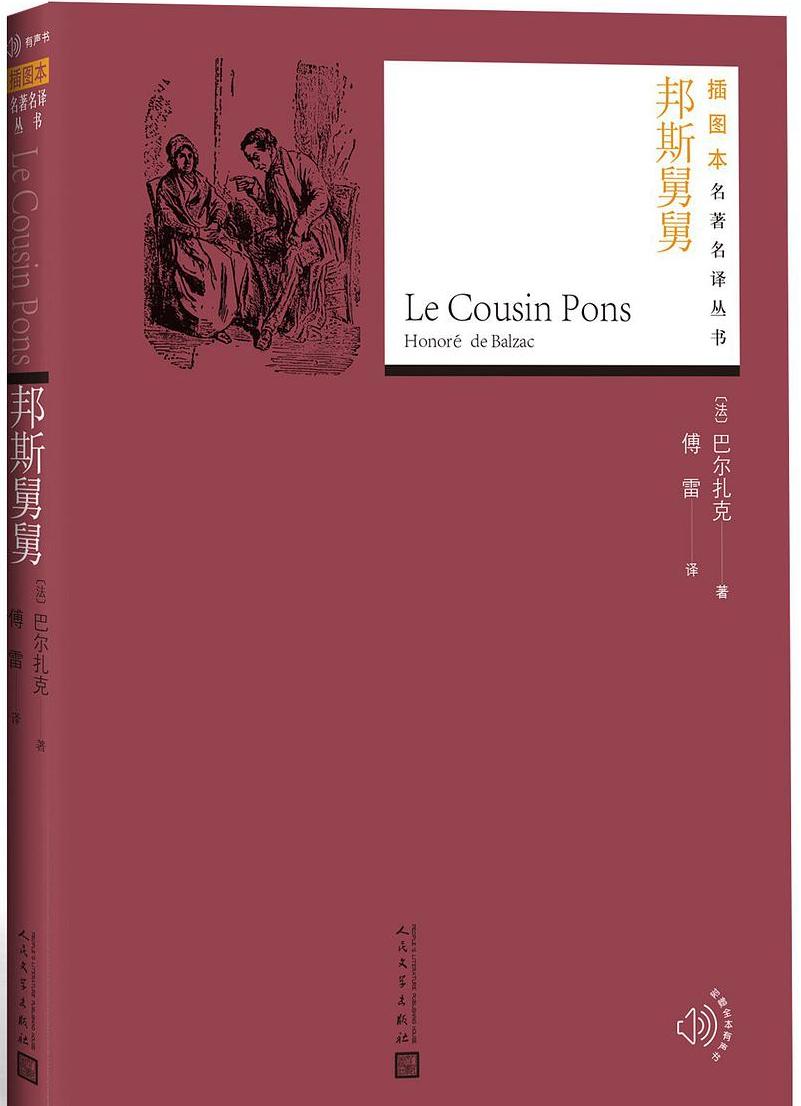It is well known that money is an important thematic element in the works of the French nineteenth-century literary hero Balzac. The Italian writer Calvino argued that money was "the driving force behind Balzac's narrative" (see Why Read the Classics).

Chinese translation of Uncle Bunce
In The long novel Uncle Bunce, the owner of the money is Uncle Bunce, a bachelor. He was an honest musician with extraordinary taste, a high degree of appreciation, and a particularly good collector of works of art. These collections also made him worth soar, becoming an "invisible rich man".
When poor Uncle Bunce is critically ill, a bunch of people around him who covet his collection begin to stir, and all the forces are mixed together, hoping to get a piece of the pie or a profit from it.
In contrast, the only person who is really good for Uncle Bunce is almost only Semek, who is also a musician. But the German was clearly too simple to give Bunce substantial help. I have to say that the feelings between him and Bunce are deep and sincere, and even a little ambiguous from today's point of view.
The whole book revolves around the encounter of Uncle Bunce, and the plot is ups and downs, and the tension is moderate. Earlier, it was written that Uncle Bunce was disliked by the nephew's family because of the problem of "old food", and later introduced the object for the nephew's daughter, and was warmly received, but the ideal husband-to-be suddenly changed and refused to propose, so Bunce's status instantly plummeted, and he fell ill for this.
Bunce's critical illness is undoubtedly a key turning point in the novel. For the sake of his inheritance (collection), the concierge, doctors, lawyers, sellers of old goods and other people are eyeing the tiger, and jointly conspire to compete for property, of course, each pregnant with a ghost fetus, playing his own small calculations.
Uncle Bunce, who had returned to the light, finally saw the true face of the ugliness of the people around him. As he lay dying, he tried to strike back. But these dying struggles don't really make much difference.
At the end of the novel, the conspiracy of the bad guys succeeds. This is where Balzac is not conventional.
-END-